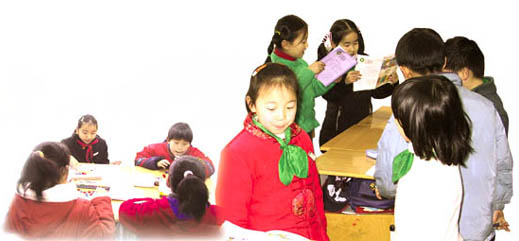A chance to make a breakthrough
Small class teaching has also allowed underperforming
schools to reform themselves. Four out of the five schools we visited
had formerly been perceived by parents as poorly performing schools and
had problems in recruiting students. Their school heads told us that they
had taken the opportunity of small class teaching to improve their curriculum,
adopt measures to enhance the quality of student learning and re-build
the reputation of their schools in the community. Positive feedback has
been received from the parents.
A profound change in school culture
In Hong Kong, discussions on the effectiveness of small
class teaching have often referred to the findings of a small number of
studies in the United States,
which focused on changes in student academic attainments. The Shanghai experience has provided us with valuable data relating to the implementation of small class teaching in East Asian societies. We have found that the impact of small class teaching on the quality of school education is much more far-reaching than any effect on student academic attainments. It has represented a profound change in school culture in which students are placed at the centre of teaching and learning. In the implementation process, school heads and teachers have changed their roles from knowledge transmitters to ones who inspire students to construct knowledge. In the process they have gained flexibility and autonomy in exercising their professionalism.

Students in a small class actively engage themselves in learning activities and discussions